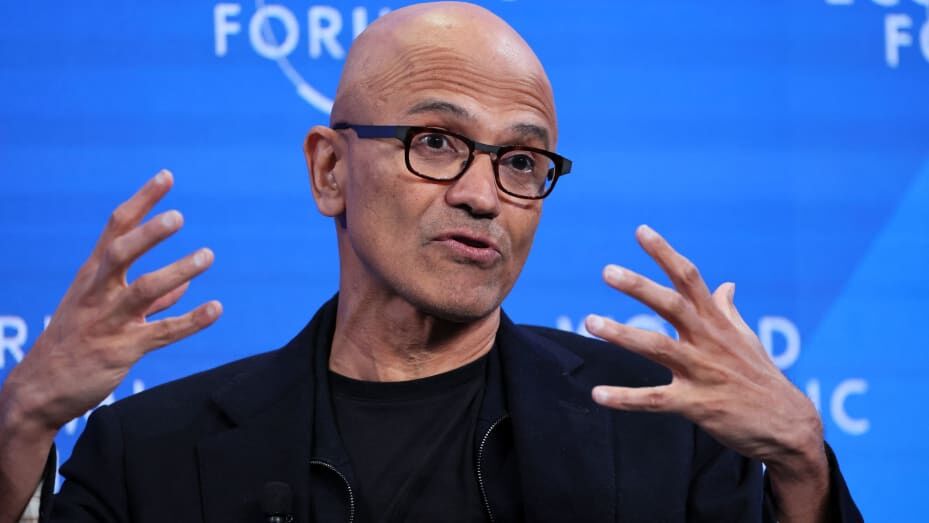AI poised to propel global productivity, says Microsoft CEO

Microsoft Group Chief Executive Officer (CEO) Satya Nadella has identified a pressing global need for a new artificial intelligence (AI) growth engine to unlock potential. According to Nadella, AI has emerged as the most potent technology since the inception of the Internet era and is capable of propelling worldwide productivity growth.
The 56 year old CEO stated that the previous year was a period of experimentation, while the current year would see real-world application, with job roles transforming.
“Some job descriptions may transition to AI, while others may merge with existing AI-driven positions, leading to entirely new roles or professions.”
Tsinghua University stresses the importance of educational institutions to prepare for the future of education by focusing on human capital. It was noted that 44% of skills could become obsolete within half a decade.
This highlights the need to develop future skill sets or roles in the job market, including discussions about the future of employment, where green jobs and AI will increasingly assume central roles.
The Indian-American business executive suggested that job tasks might be broken down, with some tasks being automated by AI. This could lead to task regrouping or novel positions such as a combined marketing and business associate role, formed from separate marketing associate and business associate roles.
“Job descriptions within organisations will undergo significant changes this year, giving rise to new professions such as AI responsibility partners, who will be responsible for overseeing regulation, protection, and ethical AI usage within organisations.
“Additionally, green jobs will focus on monitoring negative environmental impacts resulting from transitions, among others.”
AI could gradually take on larger roles in employment, enhancing human capabilities, assisting individuals in honing new skills, and affording them more free time due to increased productivity. AI could also gradually replace certain tasks in job descriptions, leading to the emergence of new professions and necessitating the development of new skill sets by those impacted by automation.
Many business leaders have underscored the pivotal role of human capital, which will precipitate significant changes in the job supply chain, leading to reshuffles, unbundling, and rebundling by AI, thereby affecting the future of employment, reported Bangkok Post.
This shift will primarily affect white-collar workers as AI begins to replace cognitive tasks traditionally performed by humans. A surge in digital roles such as digital moderators and digital doctors is expected to follow.
Latest Thailand News
Follow The Thaiger on Google News:


























